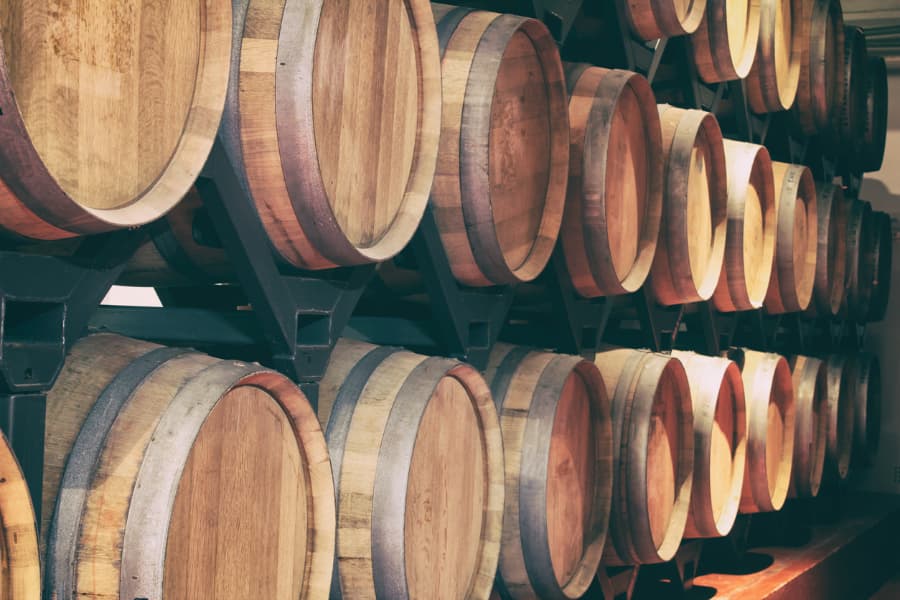
Alcohol is used for celebrations of all kinds, and when there is a special occasion, you break out the wine and spirits. While you may not think much of it, certain storage requirements should be maintained to ensure the integrity and quality of your alcohol. At Columbia Distributing, we offer a wide variety of products, including wine and spirits. Here are some of our best practices for wine and spirit storage.
How to Store Wine
Today, wines are sealed using screw-on caps, rubber, and traditional corks. If your wine has a screw-on cap, it can be stored upright. However, wine bottles sealed with corks need to be stored on their side – this is to prevent the cork from drying out, which helps preserve the wine as well. When a cork dries out, it allows oxygen to enter the bottle, which, in turn, causes the wine to oxidize and leads to the deterioration of your alcohol.
Avoid storing your wine in excessively dry spaces. White wine should be stored between 45-54°F, and the optimal temperature for red wine is between 54-64°F.
Storing Your Spirits
Unlike wine, spirits like gin, rum, tequila, vodka, and whiskey have a higher percentage of alcohol, and therefore should be stored upright. If stored on their side, the strength of the alcohol in these spirits would cause the cork to break down and deteriorate, compromising the spirit. However, the cork does need to stay moist, so be sure to tilt the bottles a few times a year.
Keeping spirits in a relatively cool place also preserves them for longer. Similar to red wine, these spirits should also be stored somewhere between 54-64°F because when the temperature increases, the alcohol begins to evaporate, and over time, the quality of the spirit begins to decline. While tequila, whiskey, and rum are best stored in cooler temperatures, vodka and gin can be stored in a freezer without compromising the quality of the alcohol.
Some Wine and Spirits Require Specific Storage
But as with many things, there are a few exceptions to the rules. Madeira, Marsala, port, sherry, vermouth, and other fortified wines need to be refrigerated, as they have higher alcohol content than traditional red wines. While this won’t preserve them indefinitely, it will add roughly two months to their shelf life.
Another alcohol that strays from the typical storage requirements is cream-based liqueurs. Although they are made with spirits that should be stored in cooler environments, liqueurs made with cream need to be refrigerated. Otherwise, the cream in the bottle will separate and form into curds, at which point the drink flavor and quality of the drink are severely diminished.
To Learn More about Storing Your Alcohol, Contact Columbia Distributing
No matter how much you spend on your wine and spirits, you want them to last as long as possible so you can enjoy every last drop. This is especially true for business owners in Oregon, Washington, and California, who sell high-quality wines and spirits to their customers. To learn more about wine and spirit storage for our products available in the Pacific Northwest, contact Columbia Distributing today.